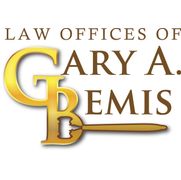Legal Issue: Enforcement of foreign judgment in Mexico
The following case study is applicable to law firms, collection agencies and key leaders and professionals at those firms such as lawyers, collection or recovery specialists, debt service managers, etc.
A $2.7M Litigation Case Study
01 | Situation
03 | Intervention
Intervention
02 | Problem
04 | Lesson
Our client had sued in contract, for specific performance. He did not know at the time that there was a provision under Mexican law which would create a challenge due to the jurisdiction clause in the loan agreements. Our involvement earlier in the case, before filing his complaint, would have eliminated the potential risk, suggesting any other of the available remedies not based on contract, such as restitution. Therefore, in cases where litigation in the USA will potentially require enforcement of a judgment abroad, it is wise to seek proper counsel in such place of enforcement from the start, to clear any hurdles and potential risks that may arise down the road. (For more information, please read our article: “How to Enforce a US Judgment in Mexico: Hidden Rules on Homologation.“)
Lesson
01 | Situation
A lawyer obtained a judgment in California against a Mexican corporation and two individual shareholders. The judgment had ordered the defendants to turn over real estate located in Mexico to the plaintiff, as provided in the underlying loan agreements. Legal action was followed after defendants refused to pay back the loan for $2.7 million USD. The lawyer came to HMH Legal asking for assistance with the homologation and enforcement of his judgment in Mexico, after he had already obtained such judgment.
02 | Problem
The loan agreements included a clause that called for Mexican law as governing law and exclusive jurisdiction for the Mexican Courts, for any related dispute. Although such clauses were struck down as null and disregarded by the California court (as deemed contrary to public policy in California), specific provisions under Mexican law deny a foreign judge jurisdictional power to rule on a case where parties agreed to submit their disputes to the exclusive jurisdiction of Mexican courts. (Such provisions are applicable to enforcement of foreign judgments.)
Intervention
03 | Intervention
Our firm was retained to enforce the foreign judgment. Our challenge was to develop the best strategy to offset the risks involved, given the jurisdiction issue. Key in our strategy was in preparing the letter rogatory and the formal petition for homologation, both of which were designed and drafted in close collaboration with USA counsel, to satisfy all conditions and formalities provided under Mexican law. Our focus was to make a strong argument for the jurisdictional power of the California court, reasonably exercised as all facts of the dispute took place in California.
04 | Lesson
Our client had sued in contract, for specific performance. He did not know at the time that there was a provision under Mexican law which would create a challenge due to the jurisdiction clause in the loan agreements. Our involvement earlier in the case, before filing his complaint, would have eliminated the potential risk, suggesting any other of the available remedies not based on contract, such as restitution. Therefore, in cases where litigation in the USA will potentially require enforcement of a judgment abroad, it is wise to seek proper counsel in such place of enforcement from the start, to clear any hurdles and potential risks that may arise down the road. (For more information, please read our article: “How to Enforce a US Judgment in Mexico: Hidden Rules on Homologation.“)
Lesson
“We had a problem with a client not paying us. We were in the process of settling a case and the client, a Mexican company, decided to go behind our back and make a deal to beat us out of our agreed fee. I felt cheated, angry and frustrated. But I was really kind of appalled that they would actually do something like that. I briefed the lawyers at HMH legal on the situation and they completely understood the situation right away. I selected HMH Legal over other firms because I had prior knowledge of them through industry conferences in the USA over the years, and I felt comfortable reaching out to them. What surprised me the most was how quickly they got a response from the debtor. I was really surprised because our debtor (former client) was blowing me off, refusing to respond to any of our emails or phone calls. After working with HMH Legal I now see light at the end of the tunnel, and the skies are brighter. I have total confidence in them, their expertise, and knowledge of the situation. I would recommend this firm to anyone, hands down.”

Services
Our services in Litigation early on are key to reduce risk or properly address a problem situation, as the one pointed out.
For more information on the topic of homologation please read our article: “How to Enforce a US Judgment in Mexico: Hidden Rules on Homologation.”






